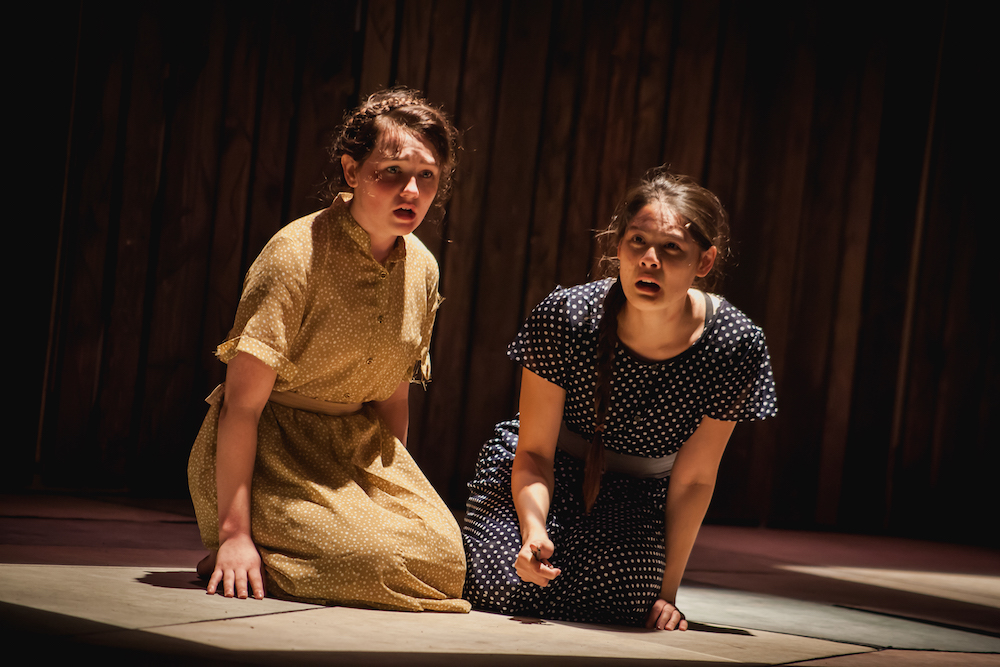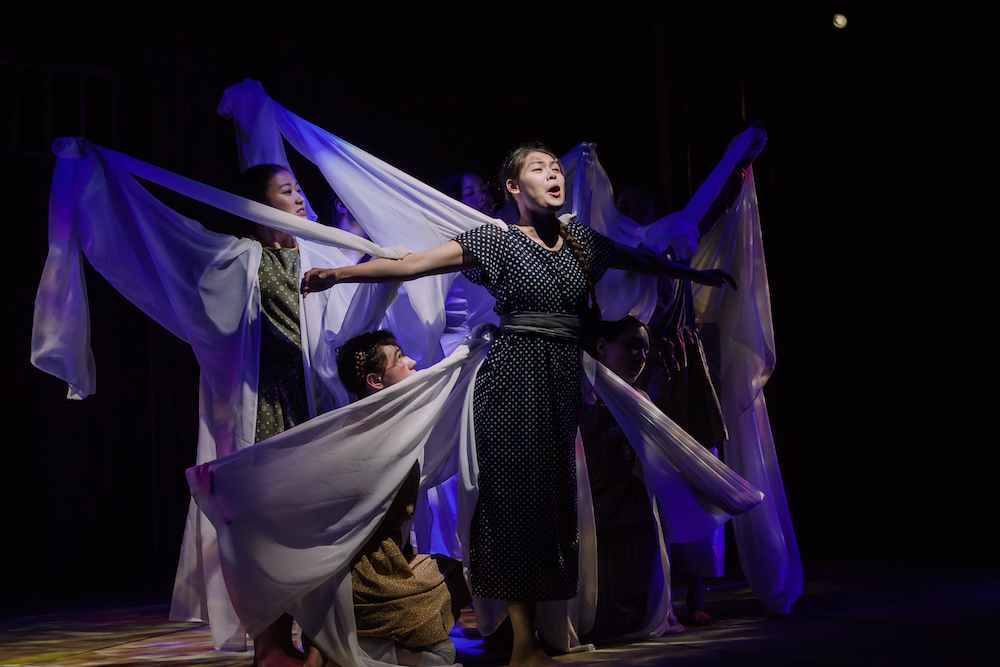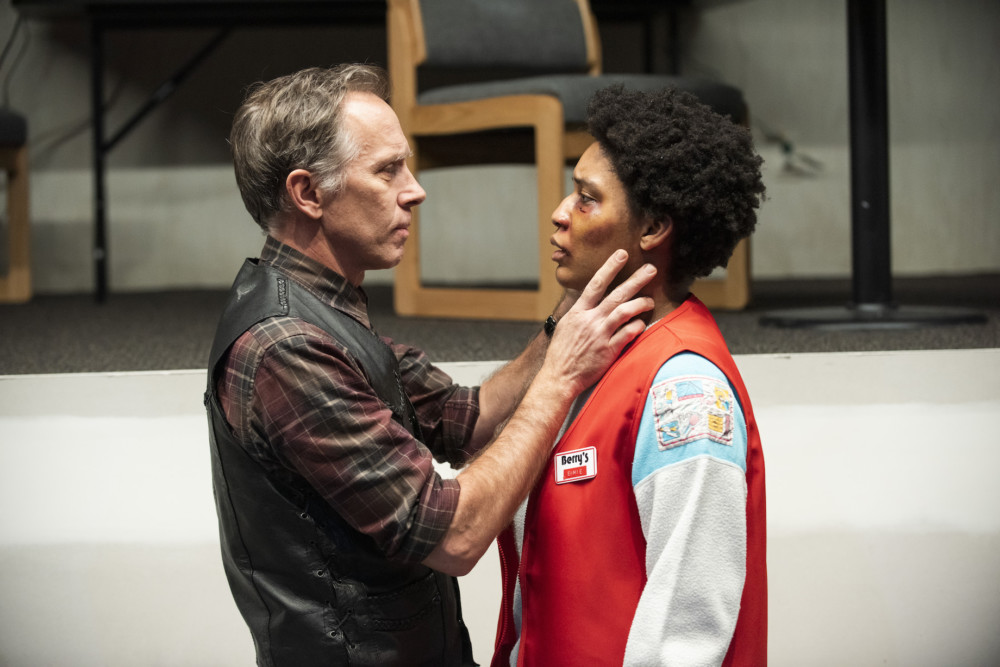By Myra Chanin
The current revival of Comfort Women, A New Musical, is difficult to watch, think about and certainly sing about which doesn’t mean that the historical events on which it’s based should be forgotten or ignored. I understand the play has received critical acclaim for revealing the horrific story of how the Japanese government, during World War II, enticed or duped Korean girls, as young as 14, whose families were more or less starving, by promising to train them for well-paying jobs abroad but instead installed them in brothels and forced them to serve as sex slaves for Japanese imperial army soldiers, positions which had been originally filled by volunteer Japanese prostitutes till their availability trickled out.
The Japanese had a particular disdain for Korean Culture, but because of Korean anti-premarital sex Confucian religious beliefs, the Korean abductees were almost always virgins, and the Japanese hoped that their virginity would impede the spread of incapacitating venereal diseases among their soldiers. They also hoped that the availability of sexual slaves would stop the Japanese military from raping the conquered population which would incite hostility and lead to espionage. It did neither. It actually aggravated the responses they tried to avoid.
Most of the comfort women in the play survived. In reality, three quarters of the comfort women died and the few survivors were left infertile due to sexual trauma or sexually transmitted diseases. Reflecting on her dehumanized status, one survivor said that she was raped 30-40 times a day every day of the years she was enslaved and that included the doctors who examined her for venereal diseases. The consensus was that the women were forced to service between 50 to 100 men per day. As you might imagine, there were also a considerable number of suicides, particularly when the Pacific war was ending, because the women were told the “white devils” were cannibals and would kill them and eat them.
How can “a musical” ever come close to revealing the agony of the 200,000 to 400,000 Korean girls who were brutally raped and beaten day and night by soldiers who felt entitled to their services. Maybe a play with music, or a very intense opera could. Actually, it’s hard to imagine that a tragedy of this depth and these dimensions could be regarded as the basis for entertainment. Good intentions are not enough. Everything has to have artistic coherence. Comfort Women is a long way from Madame Butterfly and it ain’t nothing to sing about. It just didn’t work for me, but other members of the audience felt differently. They were moved and clapped long and hard.
I was disturbed by the attribution of twenty-first century modern attitudes about romantic love that were imposed on the plot and characters. Korean marriages were not love matches. They were arranged marriages. So, a wife singing “I love you,” to her husband, seemed very out of place. In addition, the music didn’t sound Asian and neither did the lyrics. The plot was convoluted. In addition to the abducted girls, there was a subplot about a Japanese General whose son was a sergeant in the army because of his father’s help. The general had contempt for his son because he saw him as weak and incompetent. Then there is Lee, a Korean who worked for the sergeant and managed the non-Japanese workers. When Lee is sent to see one of the women as a treat, but he realizes that she is Korean like he is rather than take advantage of her, wants to help her escape. The songs of two of the other characters are too contemporary. The girl who thinks she will learn to be an entertainer a la Japan’s Got Talent. The boy who handles the laundry and will, for a bribe, deliver messages. There was no intermission and the play lasted for almost two hours.
Basically, I think the major problem lies with too many cooks in the kitchen; i.e., too many creators on the creative team. Composer/lyricist Bryan Michaels had a co-composer Taeho Park who I presume was added to Asian up the score. I didn’t think he did. The quartet of book writers Dimo Hyun Jun Kim, Osker David Aguirre and Joanne Mieses just resulted in a plethora of plot lines. The director, also Dimo Hyun Jun Kim had an associate director, Mark Cirnigliaro. I was impressed by Stella Hyun Joo Oh’s scenic design and by Natanal Kim’s choreography. On the positive side, it offered roles to 22 Asian actors with varying amounts of skill.
All I could think of during and since the play was the horror the women suffered. This subject needs to be shown, not in a musical, but as a film documentary.
Photos: NK Kim
Comfort Women, A New Musical will be performed through September 2 at the Peter Jay Sharp Theater

























